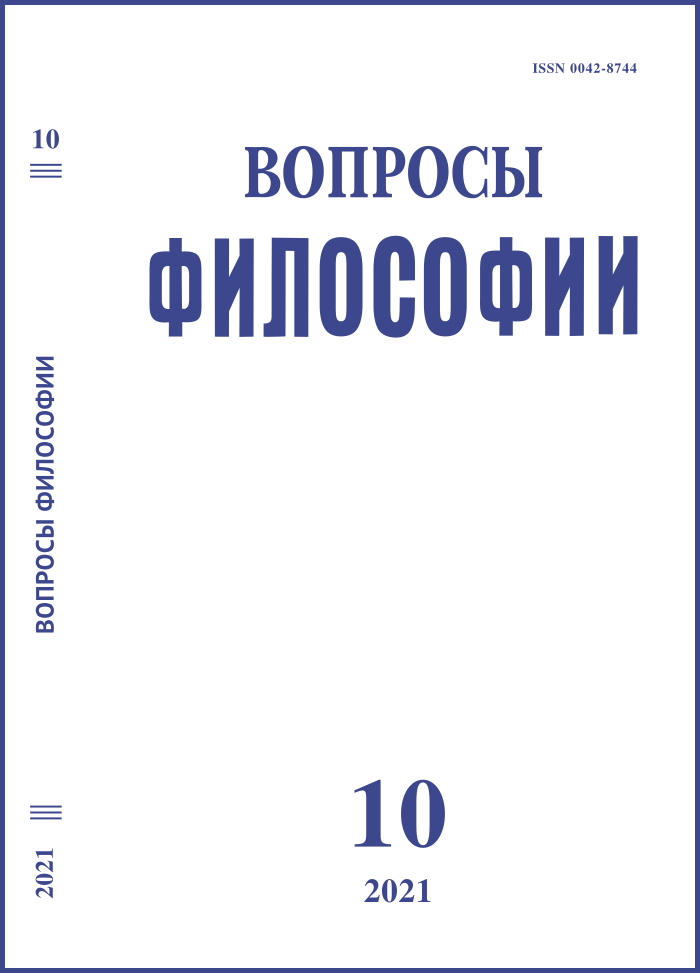Towards Religious Metaphysics: Overcoming Nietzschean Nihilism in Sergei Bulgakov’s Philosophy
DOI:
https://doi.org/10.21146/0042-8744-2021-10-130-137Keywords:
philosophy of religion, Russian thought, religious metaphysics, Nietzsche, nihilism, irrationalism, Sergei BulgakovAbstract
Friedrich Nietzsche’s philosophical views had a serious impact on the Russian thought of the Silver Age. In this article I show that one of those influenced by the German thinker was Sergei Bulgakov, despite the fact that in his writings he practically did not consider the philosophy of Nietzsche by itself. Unlike a number of other contemporaries who were greatly impressed by the works of Nietzsche, Bulgakov did not take his philosophy in a complementary way, but took it critically. The article puts forward and substantiates the thesis about the key importance of the figure of Nietzsche for Bulgakov in 1900–1910. Nietzschean philosophy in many ways becomes for the Russian thinker the “negative” basis, criticism of which allows Bulgakov to formulate in many respects the provisions of his own, religiously tinged idealistic metaphysics. Bulgakov treats Nietzsche exclusively as an anti-Christian and atheist. Subsequently, when Bulgakov proceeds to build his religious-metaphysical system, references to Nietzsche disappear: his ideas lose their ontological significance and polemical relevance for Bulgakov

